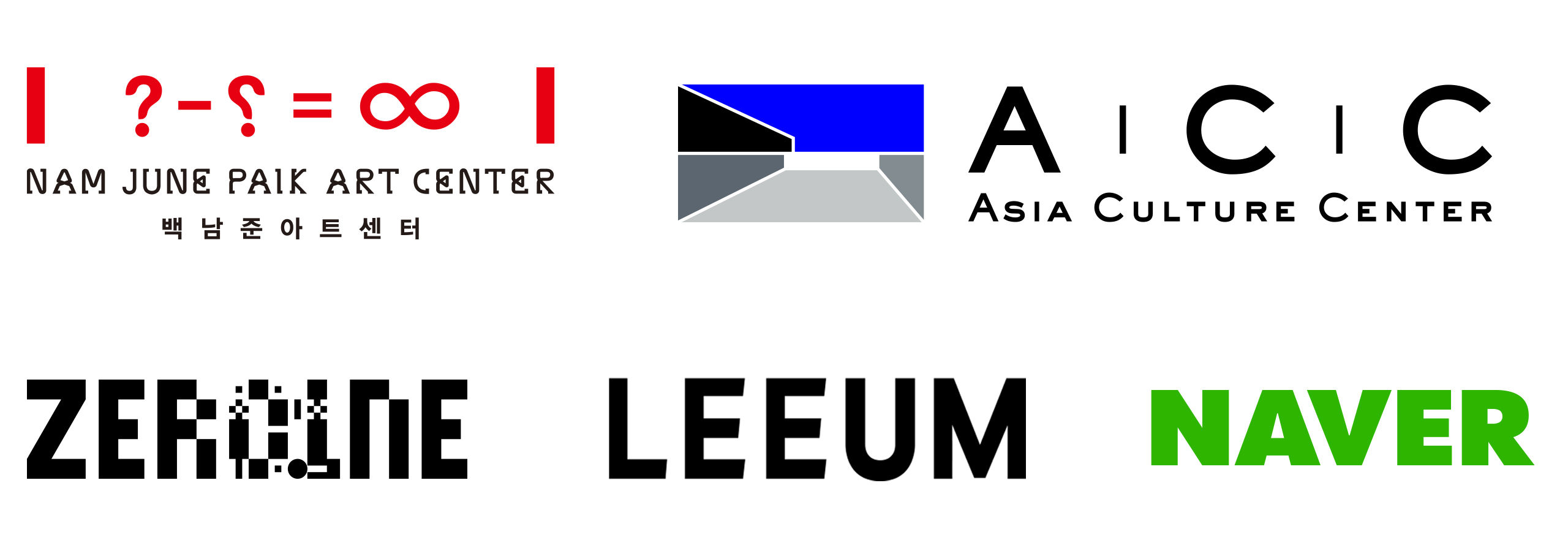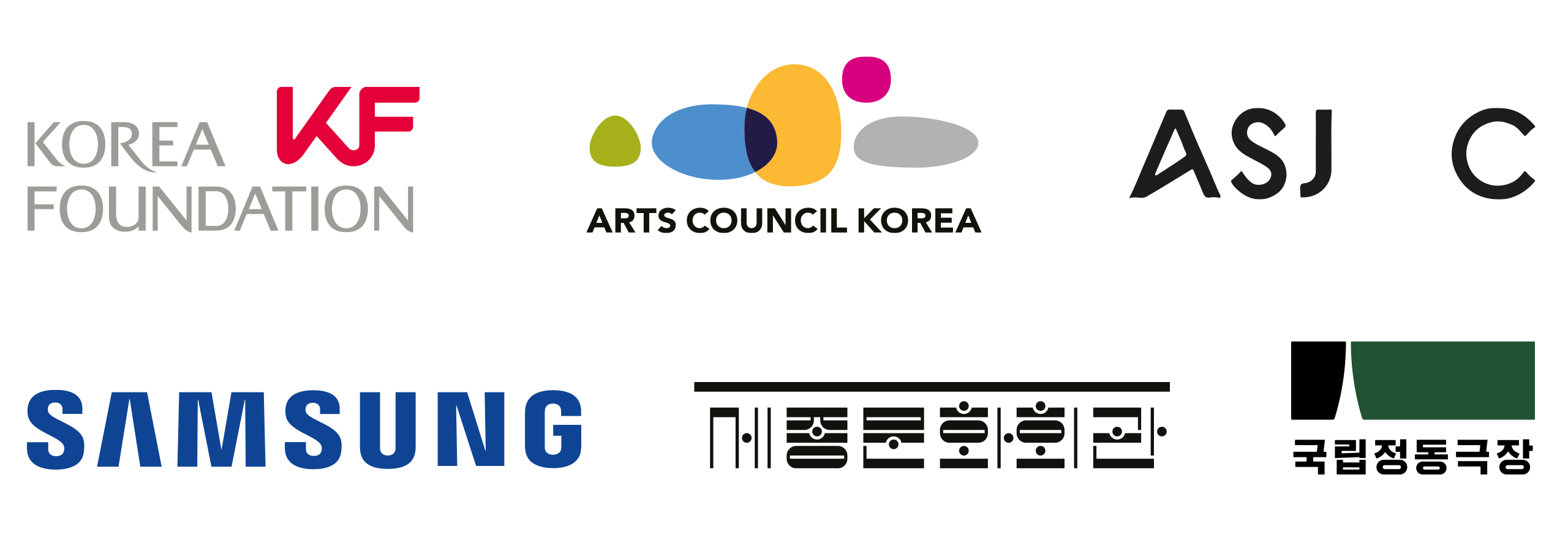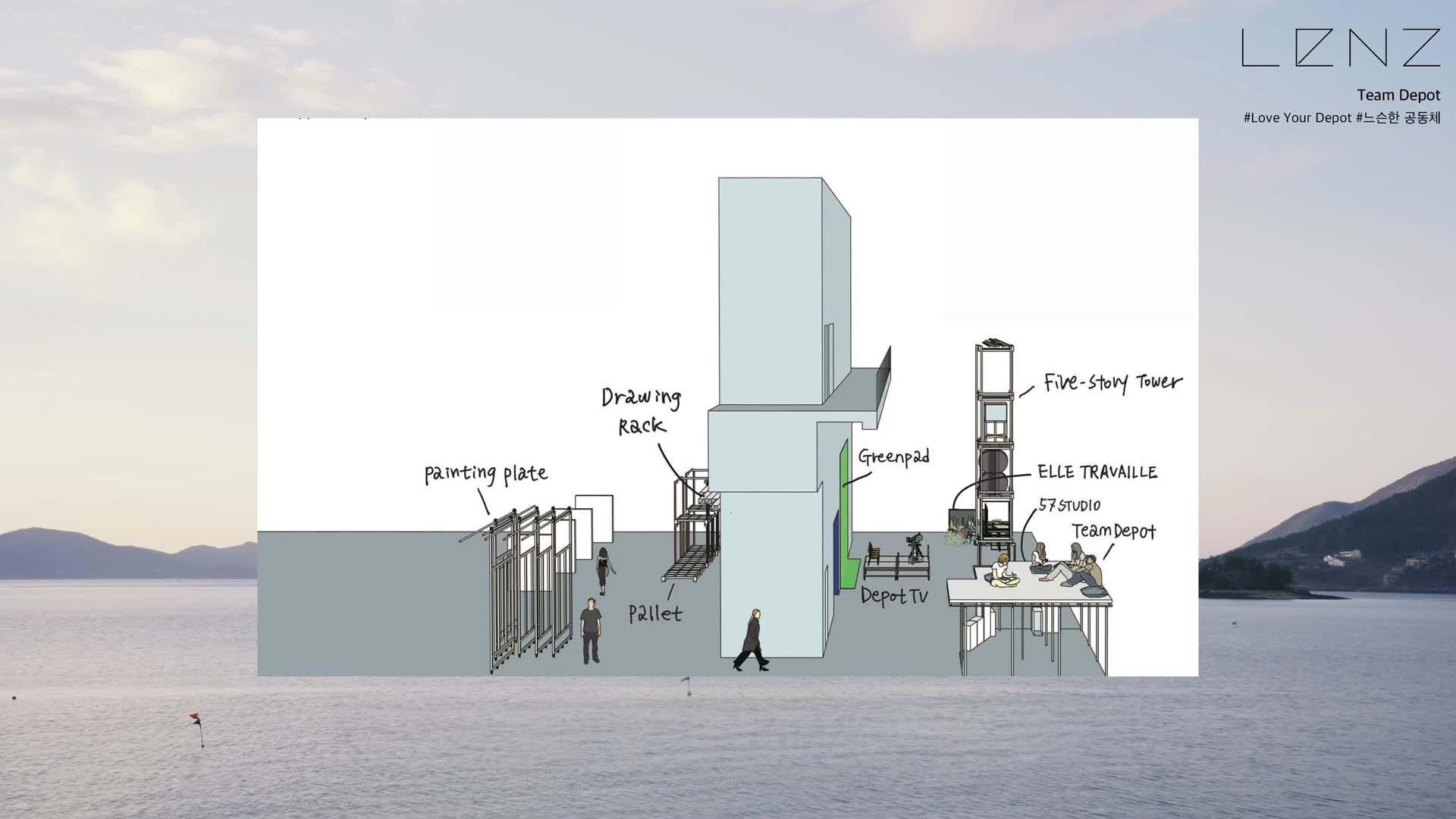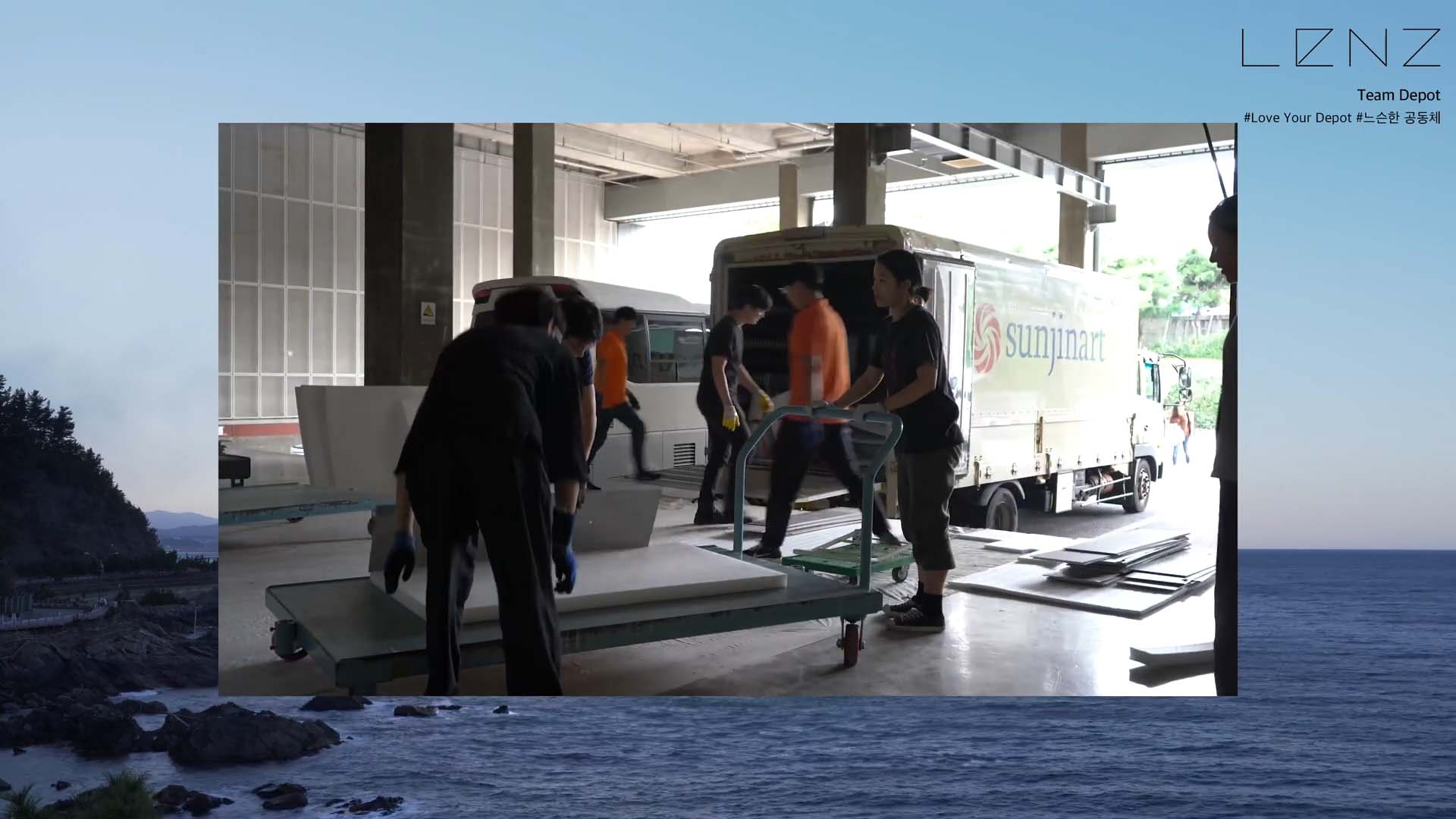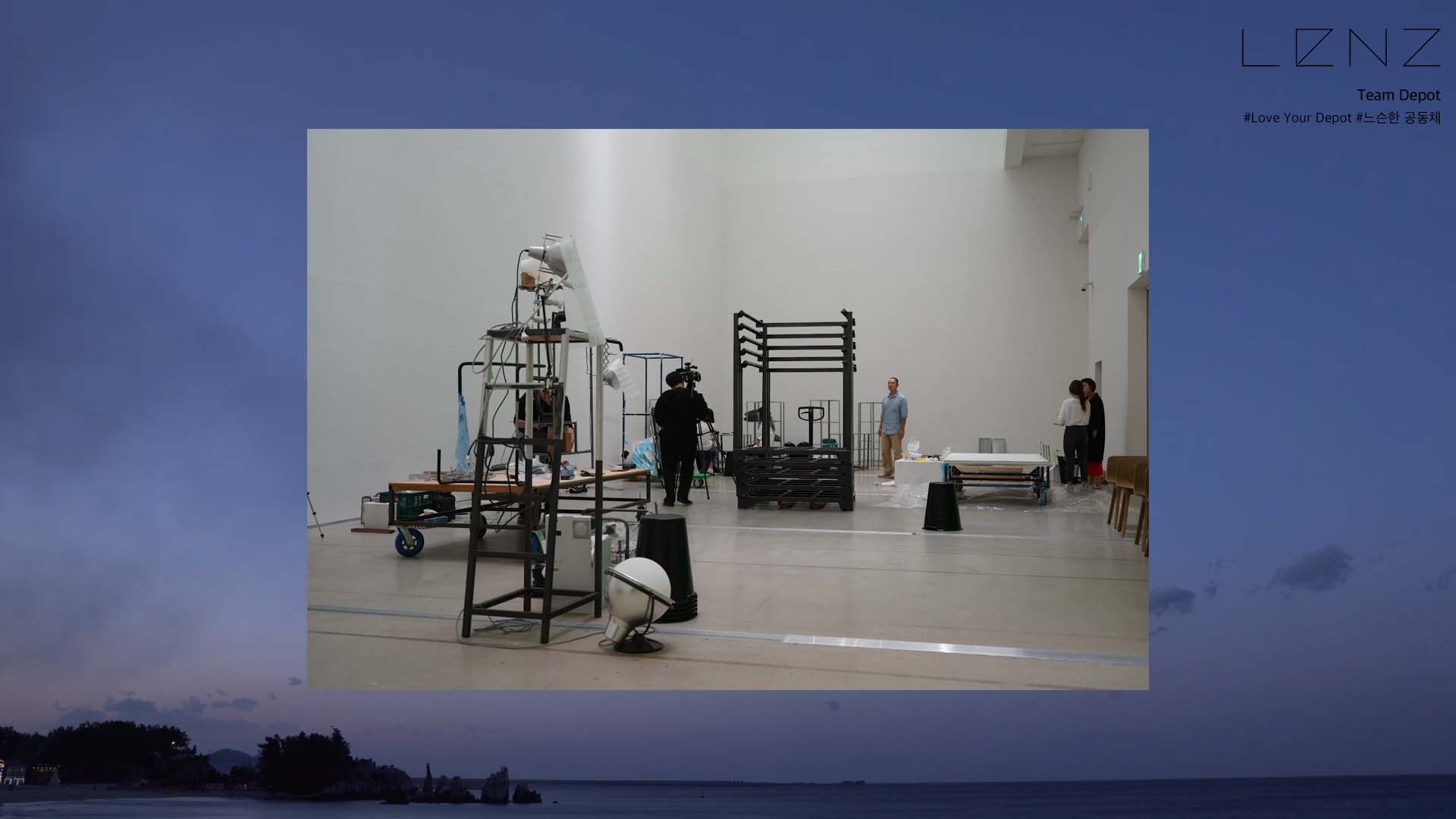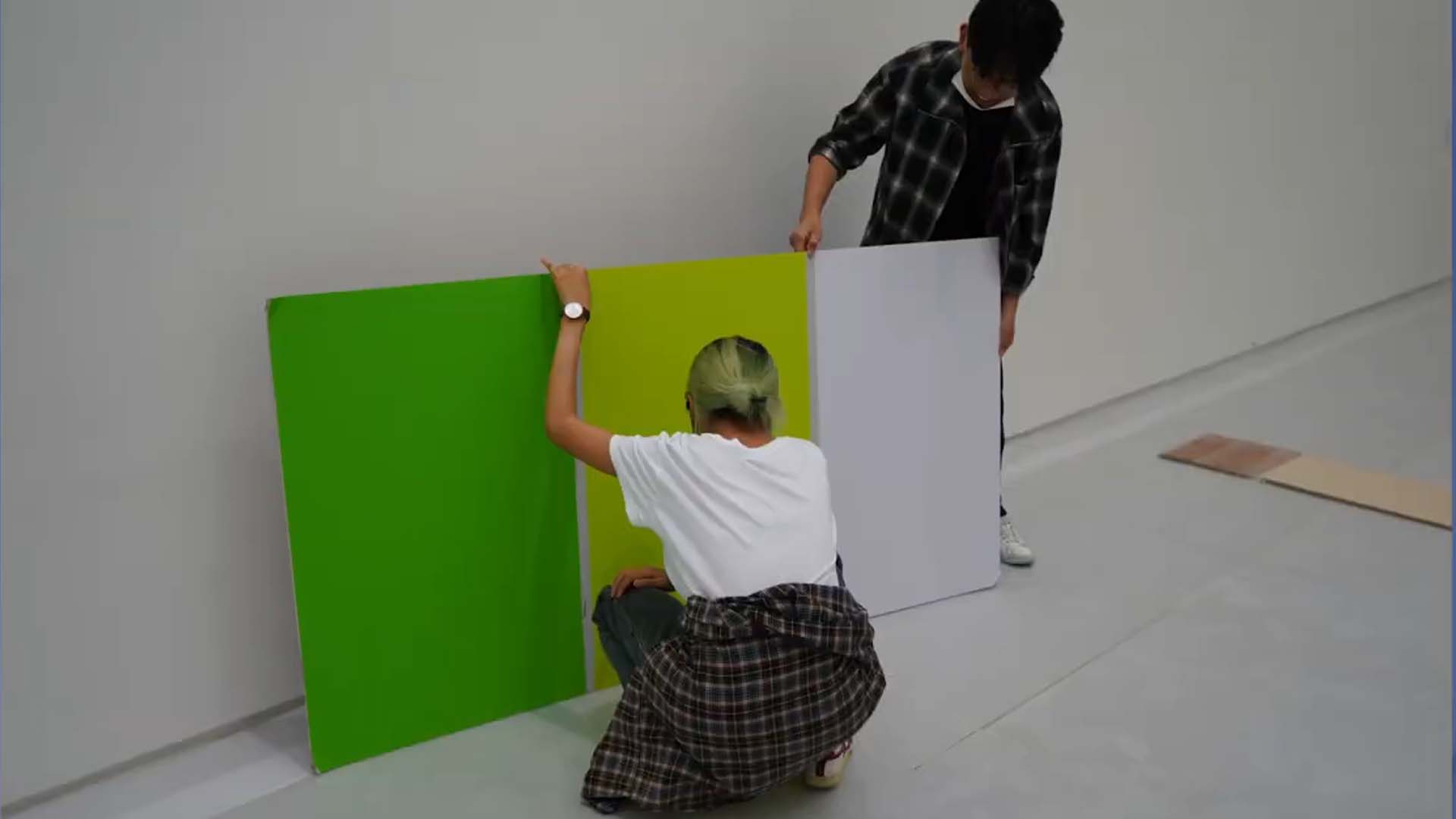Lee MeeJee: So, Team Depot is also like each artist’s studio. Do you each have your own workspace?
Jiro: I recently visited Ggangdori’s studio, and it was really nice.
Ggangdori: Well, it’s not exactly a studio. It’s a big room in my apartment, so I use that as my workspace. I recently started grad school, and at school, they provided a studio space that I can share with my peers, which I’m really excited about. Because when I work alone in my studio, it’s hard to find motivation. But if there’s a friend working hard next to me, it gives me a sense of support, like, “I should work hard too.” I’m really looking forward to that.
Borisu: I also share a semi-basement studio with two others.
Jiro: I don’t currently have a studio, so I move around a lot to work. But most of my studio stuff is now at my parents’ house. I really want to find a studio, but it’s tough because I don’t have the money or a car. Having a physical workspace is really difficult for me.
Ahn Jae-young: The workspace is essential for artists, but I also feel that some artists don’t consider it that necessary. Since you don’t have a studio, what kind of studio would you like to have?
Jiro: I’d love to have a workshop where I can freely do woodworking and metalworking. I’d want a space where I can make noise without bothering anyone. And, of course, it shouldn’t be expensive and should be somewhat close to home.
Lee MeeJee: It’s difficult when it’s too far away.
Jiro: Yeah, it feels like a big ask.
Lee MeeJee: So, I’m curious about your future plans. What are your plans going forward?
Ggangdori: Personally, I’m preparing to enter grad school, as I mentioned. What about the rest of you?
Jiro: I’m not entirely sure about my future plans, but since Love Your Depot is ending, I’ve been thinking a lot about what comes after the exhibition ends. I think the process of deinstalling and how to transport the works is also really important. The title itself is about what happens to the works after the exhibition, right? So, I’m thinking about creating some objects and doing performances around that, to tie into the process of taking down the exhibition. I’m not sure when it will happen, but we have our last performance on the 28th, so I plan to perform then.
Borisu: I think we’ll do a performance on the last day of the exhibition. Honestly, we’ve been doing this for five months, and after it’s over, I’m unsure about what’s next. But I think it will be something fun.
Lee MeeJee: It’s time for the official question now. Please go ahead.
Ahn Jae-young: The final question. What does Love Your Depot mean to you?
Jiro: When I first got asked this, I wasn’t sure what to say. But if I had to answer, I’d say that when you think of “Love” in Love Your Depot, it evokes a lot of emotions in people. It may sound a bit cheesy, but that’s what I feel.
Ggangdori: I hadn’t really thought about it deeply before, but thinking about it now, I remember what Jewyo Rhii said about the identity of Love Your Depot in the beginning. Jewyo Rhii told us that this could be an intermediary space, one where we could learn in a way that feels like an internship, where we experience what it’s like to work in the field before actually going out. After experiencing it, I can see the value of this kind of educational experience, which is different from just learning from a teacher in school. It’s more about learning how to handle various aspects, like seeing how an artist works in the field or how things are done in the studio. For me, Love Your Depot feels like this intermediary space where you learn and experience things that help reduce uncertainties for the future.
Borisu: Love Your Depot is a playground for me. Because the Instagram account of Love Your Depot is called “Love Your Depot Playground.”
Jiro: Yes, we named our Instagram account “Playground.”
Borisu: When you think about it, a playground is open for everyone to use. While I’ve been here, I’ve met so many people I never thought I’d meet before. A playground has slides, seesaws, and other things, but the people who get used to it don’t follow the manual—they create new games. I think Love Your Depot is similar. It provided us with a space and time to get used to it, and for me, it allowed me to try out many new things. So, I’d say Love Your Depot is like that.
Lee MeeJee: Jae-young, you’ve worked with us on Love Your Depot since the early stages at 57STUDIO. What does Love Your Depot mean to you?
Ahn Jae-young: I think it’s similar to what was said earlier, but since I wasn’t fully immersed in Team Depot like you all were, I feel a little different. When Jewyo Rhii first explained the concept of Love Your Depot, I felt quite sad. The idea that an artist is considering what will happen to the work after it’s finished, and even the idea of disposing of a work, really struck me. It was something I heard from fellow artists as well, and it felt a bit bittersweet. So, for me, Love Your Depot will remain a great memory.
Jiro: What about the director?
Lee MeeJee: As I told Jewyo Rhii several times, for me, Love Your Depot is about meeting Team Depot. Honestly, I’ve been working in the art scene for a while, and it’s hard to meet new people. The art scene itself can be quite closed off. Even when you meet new people, it’s rare to find someone with that kind of curiosity, energy, and healthiness. But when I started working on Love Your Depot, I met all of you, and I became more convinced that this would work. I even told Jewyo Rhii, “I think these people will be the main players.” For me, Love Your Depot is really about Team Depot. Even now, after recording today, I feel more connected to why Jewyo Rhii worked with all of you on this project. You all have the stage presence. I didn’t realize how well you could do this kind of recording. It’s really reassuring.
Ggangdori: We also felt very supported by 57STUDIO in many ways.



